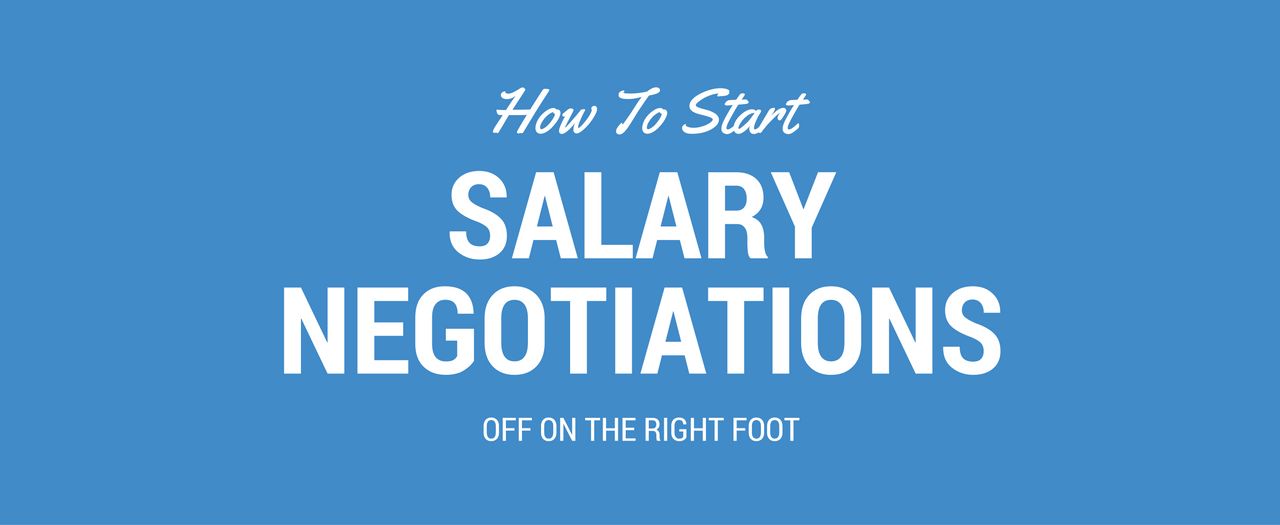There’s a slight disagreement about whether or not employees are being paid fairly. A 2016 report from Payscale found that while 73 percent of employers feel they offer fair pay, only 36 percent of employees agreed. As a recruiter, you’re in a unique position to help close that gap because often you’re the first person to begin discussion about salary negotiations with candidates.
It’s a big responsibility to make sure that both the candidate and the employer leave the negotiating table happy and feeling like their needs were met. Here are four expert tips on what you need to remember when you start talking numbers with candidates:
How to start the discussion
If you’d like the person you’re interviewing to suggest the salary range they were thinking first, you can ask what they were paid at their last job as a way to begin the discussion. If they feel comfortable disclosing that information, then go ahead and move forward by asking, “What do you think would be an appropriate salary for this position?”
Keep in mind that this is just a way to start the discussion, nothing’s permanent at this stage just yet. Learning what your potential employee feels they should be paid can tell you a lot about the type of worker they think they are as well as their aspirations.

Dana Case, Director of Operations, MyCorporation
Know that some candidates are just in it for the money
One of the best ways to determine the underlying goals and interest level of a candidate is to lowball them on a contract offer. Before all the readers shake their heads in disapproval, here me out. It’s a simple fact that people will take less money if they value the company, the position, and the experience.
In my experience, an employee who is more concerned with money will be thoroughly offended and usually back out. Those who begin to negotiate are the ones you want to keep. To sum it up, the people who would take the job at a significantly lower salary are those who are worth keeping.

Pierre Tremblay, Director of Human Resources, Dupray
If you want to be transparent, you need to be realistic
The best way to make the discussion more honest and transparent is to simply be realistic. It’s also important to understand the discussion is going to heavily depend on the experience of the employee.
If you’re hiring someone who has considerable job experience that is going to fill a critical senior role, the best thing to do is ask them for verification of their current salary. Typically, you need to offer a compensation package that is at least as strong.
With a younger, more inexperienced candidate, you should make an offer that you truly believe is at the value of that role to your organization. Then give the candidate a clear path toward increasing their pay.

Leo Welder, Founder, ChooseWhat
Negotiations can help you get to know a candidate
When it boils down to it, salary is just a number — just one factor of many in making a potential hire. The best way to approach the salary conversation is to be understanding of both parties’ needs. Ask questions like, “Do you feel valued at your current company?” “Where do you want to be a few years from now in your career?” and “What are you expecting if you made the jump to our company?” The more information you obtain from the candidate, the better understanding you are of their needs, and the easier it is to empathize and truly see if this opportunity connects with them, both financially and personally.

Seth Kuhlman, Talent Acquisition Manager, Scorpion
—
What other things are important to remember during salary negotiations? Share in the comments below!











